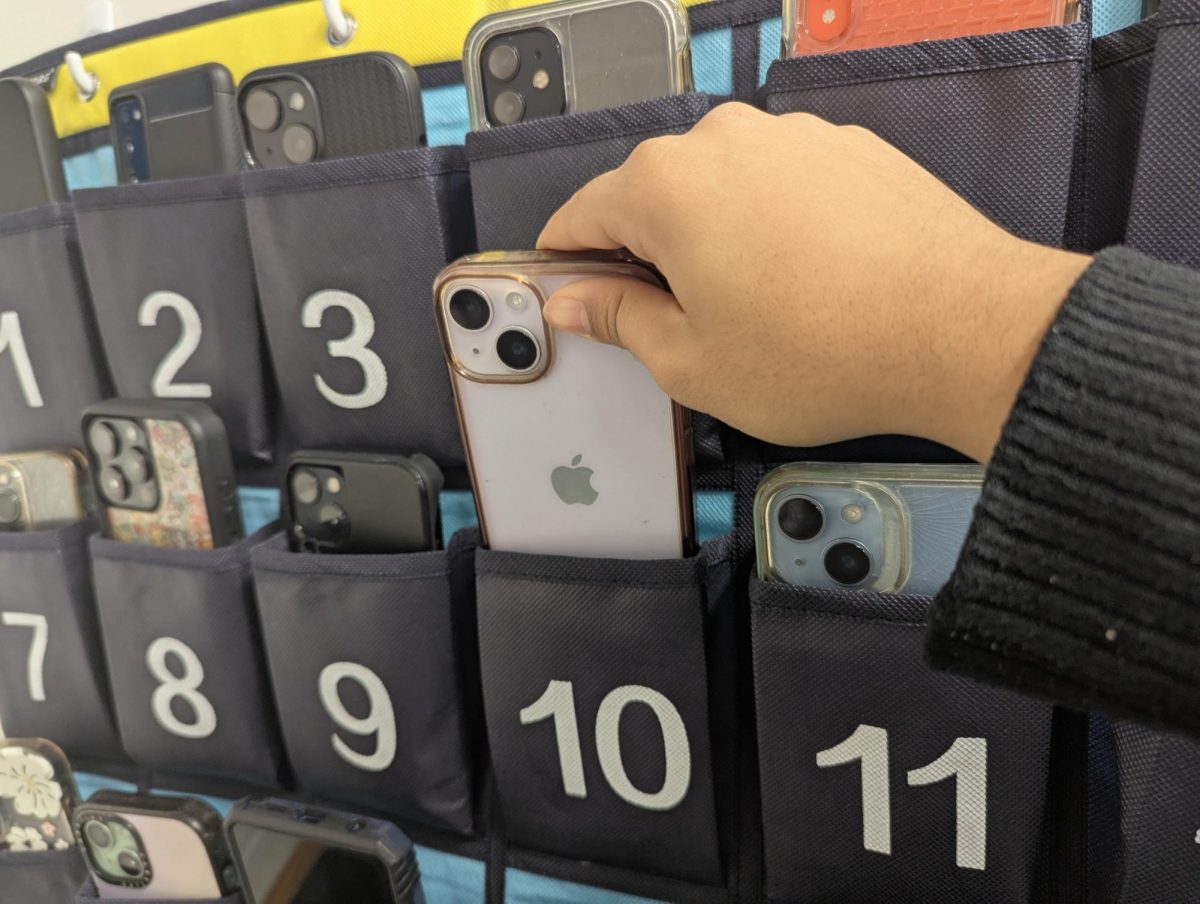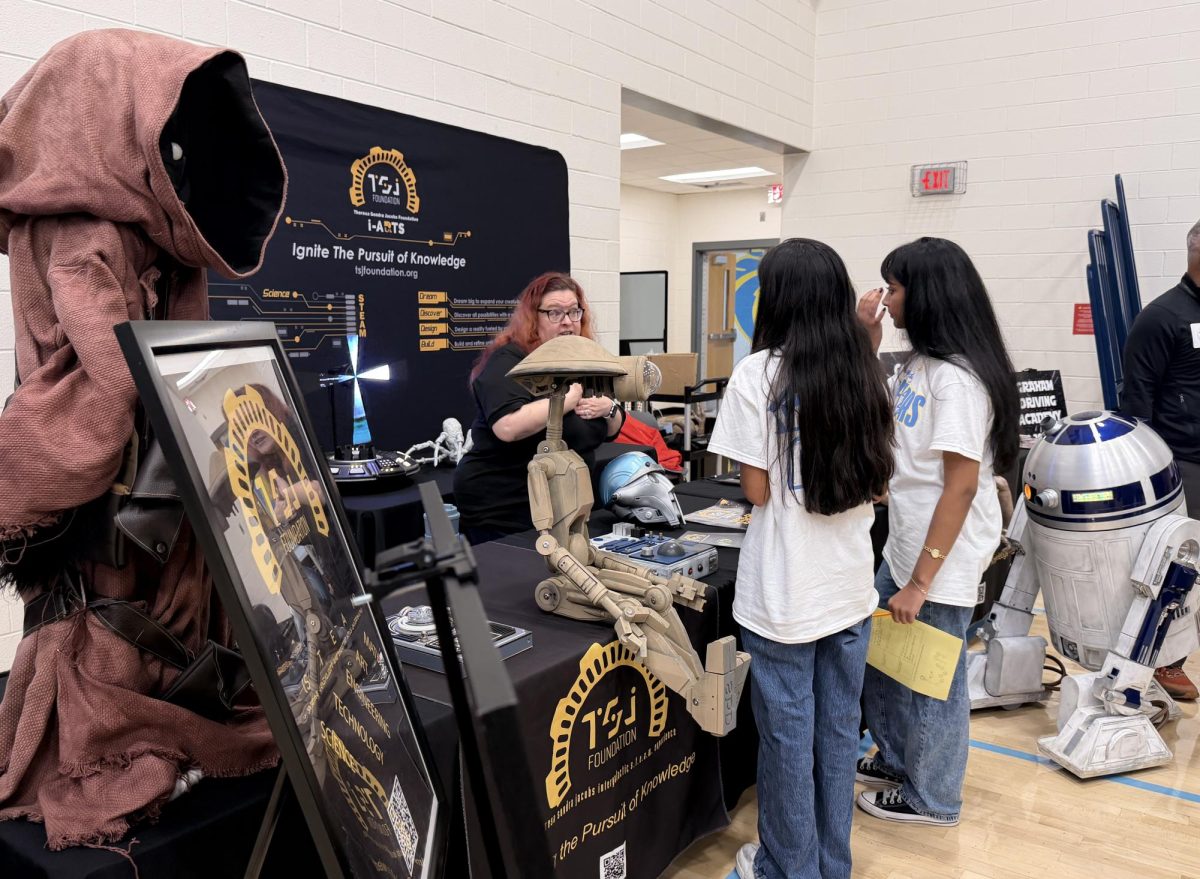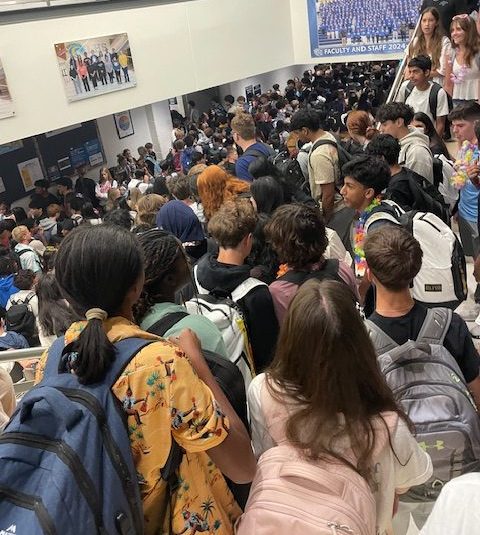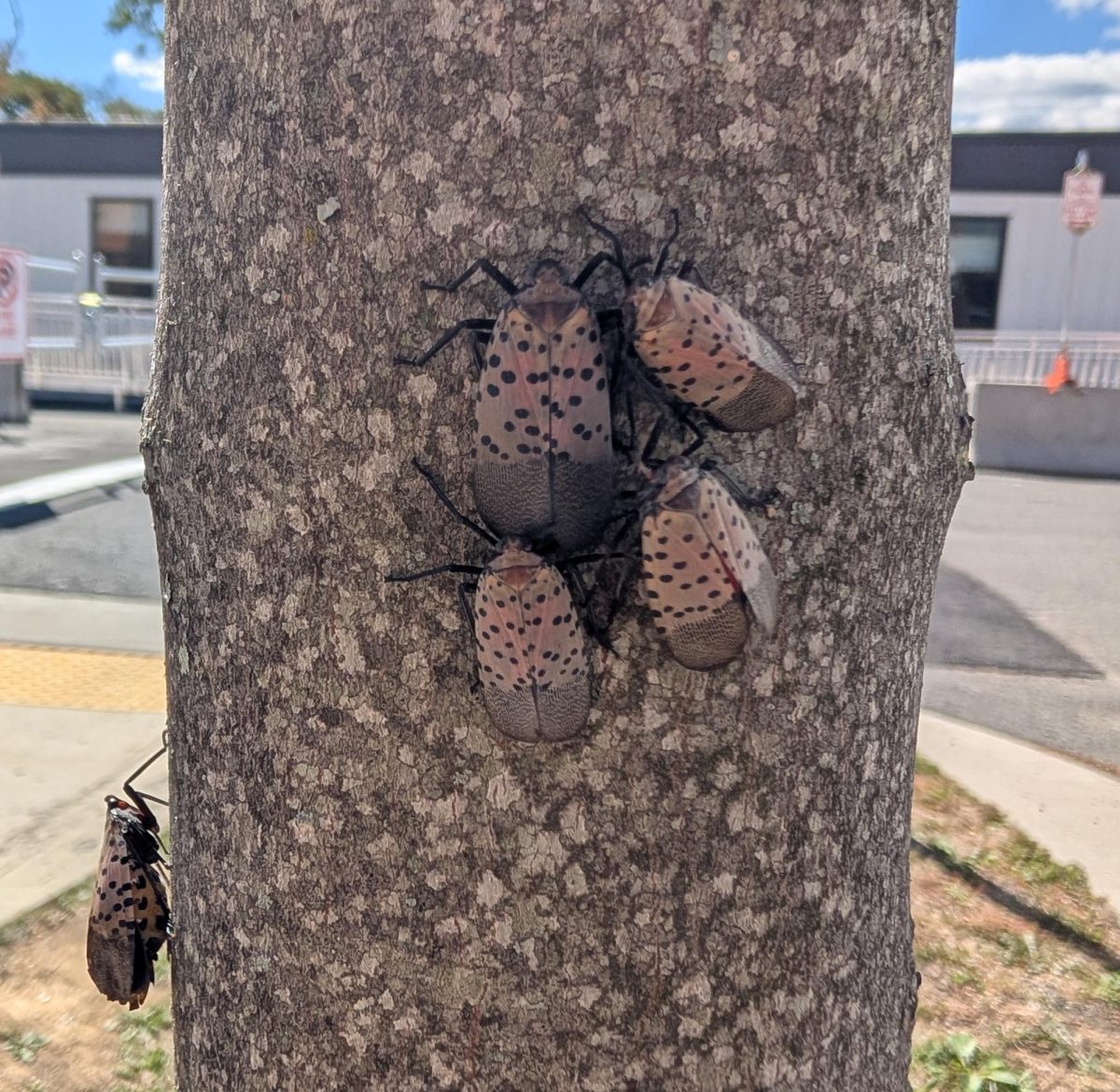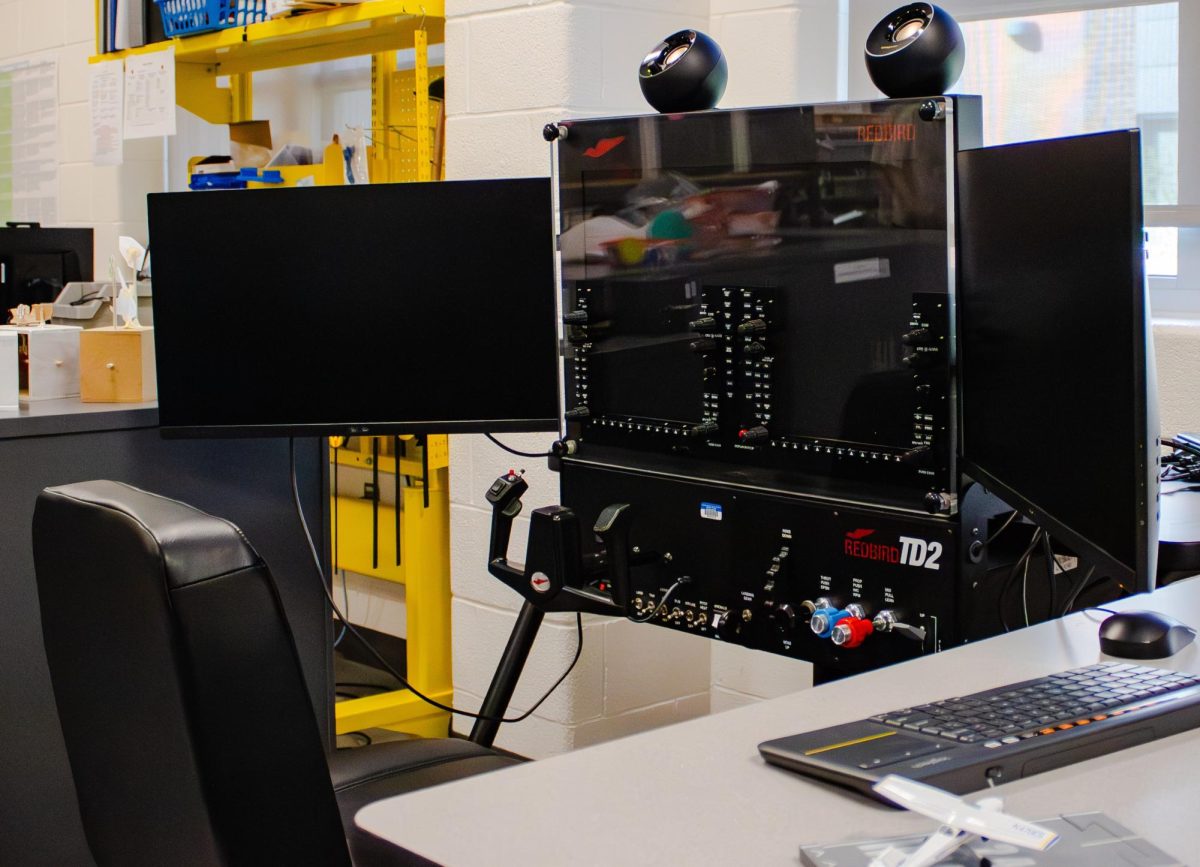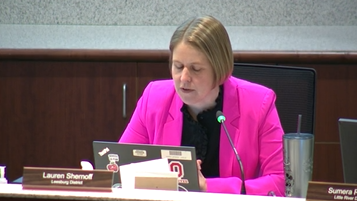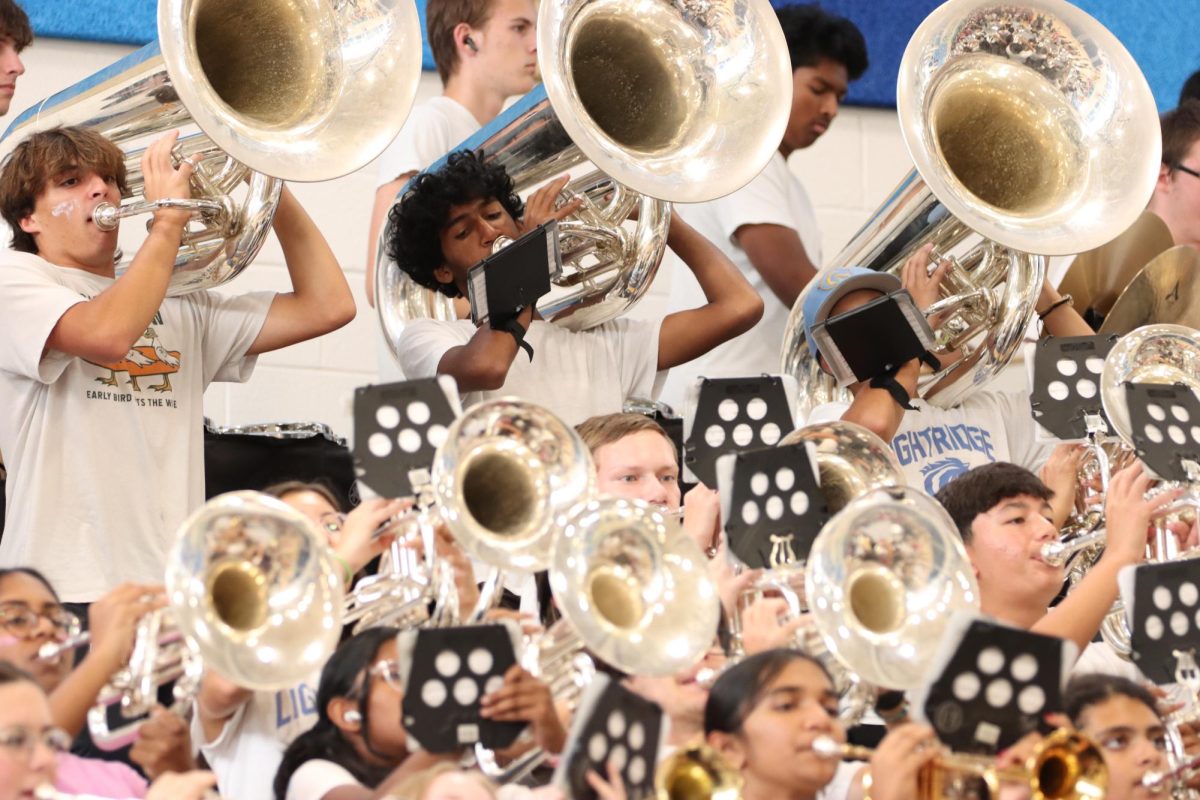On June 25, 2024, Loudoun County Public School (LCPS) approved Policy 8655 outlining a plan to limit personal technology in Loudoun schools, starting the 2024-2025 school year. This includes cell phones, tablets, earbuds, and personal gaming devices. Although the policy matches Governor Glenn Youngkin’s Executive Order 33 (EO33), Policy 8655 was approved before Youngkin’s order was issued.
LCPS started the process of drafting Policy 8655 by collecting thoughts and feedback from stakeholders. Once they received the initial input, they created a draft policy that went to the school board’s Student Behavior and Accountability Committee (SBAC). This committee is composed of three School Board Members, Ms Kari LaBell (Catoctin) who chairs the committee, Dr. Linda Deans (Broad Run), and Dr. Sumera Rashid (Little River).
Once SBAC completed its work on the policy, they sent it to the Loudoun County School Board.
During this time the policy was posted on the LCPS website for public feedback from April 25, 2024, through May 7, 2024. LCPS received a record-breaking 400 comments – which is more than they have ever gotten in a public forum. They also had the Special Education Advisory Committee (SEAC), the Minority Student Achievement Advisory Committee (MSAAC), and the Loudoun Education Alliance of Families (LEAF) review the policy.
“The goal was limiting disruptions to learning and finding a middle ground,” said Aaron Smith, LCPS Chief Technology Officer. “For example, students weren’t 100% supportive of the policy, but the common ground was that teachers and students wanted consistent classroom expectations and practices.”
Policy 8655 gives different guidelines for each level of education: high school, middle school, and elementary school. Elementary students are not allowed to use their cell phone at all, middle school students must keep their cell phones in a locker, and high school students must keep their cell phones in an in-classroom storage location. High school students are allowed to use their phone only if the teacher allows them to use it in a lesson. Students are allowed to keep smart watches, except during tests.
“Parents, teachers, and staff love it; lots of positive feedback. Students see the value but would like clarifications,” said Smith. “I do believe the policy could be more straightforward, so working on ensuring common understanding for everyone.”
One of the difficulties of making this policy was that there were different ideas about cell phone use. For example, many schools use QR codes, or clubs use mobile apps to connect students. Also, most high schools view study hall and lunch as free-time so cell phone usage were never monitored in these areas.
“The lunch period and our passing periods are our free time, so I don’t understand why we shouldn’t be allowed to use phones,” said junior Saanvi Sadu. “Using our phones can be kind of like a break for some students in the middle of very stressful classes and a very stressful school.”
Some classes require students to use their cell phones for certain activities. In that regard, Policy 8655 does allow teachers to incorporate cell phone usage for small classroom activities.
Youngkin’s EO33 requires that schools adopt a model policy that is congruent with the governor’s order by January 1, 2025. Even though LCPS has Policy 8655, it still has to create a new model policy to match EO33. Policy 8655 is being used to make the bulk of this new model policy. The main difference between Policy 8655 and EO33 is that students will have to turn off their phones “bell-to-bell.”
“Bell-to-bell [means] phones should be turned off and stored away from the first bell at the start of the school day to begin instructional time until the dismissal bell rings at the end of the academic school day,” said the Virginia Department of Education.
“Bell-to-bell” also includes lunch and time in between class periods. EO33 does not specify where students can keep their phones throughout the day, just that it should not be on their person. Storage locations are left up to each school division to decide for themselves.
“I believe staff discretion is essential, and exceptions to the bell-to-bell rules are necessary for students with disabilities, medical needs, and English learners to ensure access to educational programs,” said Melinda Mansfield, School Board Chair of the Dulles District.
Although Mansfield was not necessarily involved in the creation of the policy, she did receive feedback from residents of the Dulles District after it was enacted.
“I found that students’ dissatisfaction was primarily due to their inability to listen to music with their phones during the resource period,” said Mansfield. “So, I contacted our Department of Digital Innovation (DDI) staff and asked how we could help with that issue.”
Three months into the new cell phone policy, Mansfield has not received any comments of dissatisfaction from students, teachers, or parents.
“When I go to visit schools, I hear the staff’s excitement in their observations that students are more engaged. Teachers report that students are talking with each other for longer periods and are having more meaningful conversations,” stated Mansfield. “I think these things take time, but right now, people seem reasonably satisfied with the policy.”
Since the policy has been enacted in Lightridge High School, there has been some opposition from teachers and students alike. Certain teachers have gone off the record stating that they do not follow the policy in their classrooms. They allow students to keep their phones on them during instructional time and state that they do not agree with forcing students to keep phones in a storage location. Students have also gone off the record stating that they don’t follow the policy.
“I think the cell phone policy is a little unnecessary. When it’s their own work time, I feel like the students should be able to go on their phones and listen to music and just take a break,” said junior Saistha Devkota. “If anything, allowing the students to have access to their phones during their work time teaches them accountability as well as time management.”
Ryan Hitchman, principal of Lightridge High School agrees with the policy, stating that Lightridge had issues with cell phone usage in the past, with students seemingly being addicted to their phones and distracted in class.
“Now, I see more student interaction, I see more student engagement, more overall happiness,” said Hitchman. “It seemed that we had students that were truly focused on their phones or devices and they weren’t paying attention in class or to their classmates. It was really damaging.”
One of the main problems staff at the local level see with this policy and the executive order, is the lack of instruction on how to implement it realistically in schools. When EO33 takes into effect, staff will be taking on the arduous task of prohibiting cell phone usage during lunch, as well as transitional periods. This would require full time monitoring of student activity in areas that are crowded with students, such as the hallways.
There are certain things other schools can easily do to adapt to the Executive Order that Lightridge can’t. Many schools may force students to leave their phones in the classroom while they go to lunch, but Lightridge classrooms are used for advisory during the first and second half of flex block due to school size. Other schools may require students to leave phones in their locker, but Lightridge only has 400 lockers – and 2000 students. A point of contention for Lightridge specifically was the Lightning Lounge, as many students pay for snacks using Apple Pay. The policy and executive order would not allow this.
It’s frustrating – people enact policies all the time, but high schools have to figure out how to implement them. Everyone thinks they know what happens in high school just because they went to high school.[/pullquote] “It’s frustrating – people enact policies all the time, but high schools have to figure out how to implement them,” said Hitchman, “Everyone thinks they know what happens in high school just because they went to high school.”
Lightridge has been given some freedom in their interpretation of Policy 8655. For example, Lightridge has allowed students to use phones in study hall. They have allowed students to use their personal computers from home, such as Macbooks.
“I personally do not see the necessity of it,” said Lin Rudder, English teacher at Lightridge High School. Rudder has never struggled with cell phone issues in her class, although she believes herself to be in the minority. In general she finds that most teachers do find this policy helpful.
“I am always hesitant when there are sweeping policies that take away autonomy from teachers to make decisions,” said Rudder. “I think already as a profession, a lot of people don’t trust us with decision making. For instance, we’re not even allowed to determine our own learning targets. Now, we’re not allowed to decide rules in our classroom, I just see it as a slippery slope of losing trust as a professional.”
English teachers specifically have been targeted by Youngkin’s policies in the past. For example, when Policy 5055 was enacted in LCPS (see sidebar), many teachers found it furthering the gap between parents and teachers, and propagating the narrative that they are untrustworthy.
“I am a big proponent of ‘it’s your classroom.’” said Hitchman. “[However] if a student isn’t listening to what your classroom management, it’s not about the cell phone anymore – it’s about insubordination.”
Students will receive disciplinary action for violation of this policy, which will conform to the procedures outlined in the Student Code of Conduct and Student Rights and Responsibilities Handbook. This may include warnings by teachers in minor cases, and detention and In-School Restriction (ISR) for repeated transgressions.
“If I come up to a student and yell at them for having a phone, that’s not a good relationship,” said Rudder. “When you have a conversation with someone like they are a human being, I think the problem resolves itself – more so than a blanket policy that isn’t individualized for particular students.
“Students get very few choices,” continues Rudder. “I don’t think adults are being asked to make these same sacrifices. I think that it takes autonomy away from school buildings to do what’s right for their individual students.”
Categories:
Loudoun and Virginia move to greatly limit students’ cell phone access
Panchami Rangaraju, Editor-in-Chief
November 18, 2024
By county and local law, students have a lot less access to their phones through the school day. Phone caddies , like the one pictured above, appeared in every classroom this fall, and more restrictions are coming.
2
More to Discover
About the Contributor

Panchami Rangaraju, Editor-in-Chief
Panchami Rangaraju is a junior. This is her third year on staff, and second year as Editor-in-Chief.

